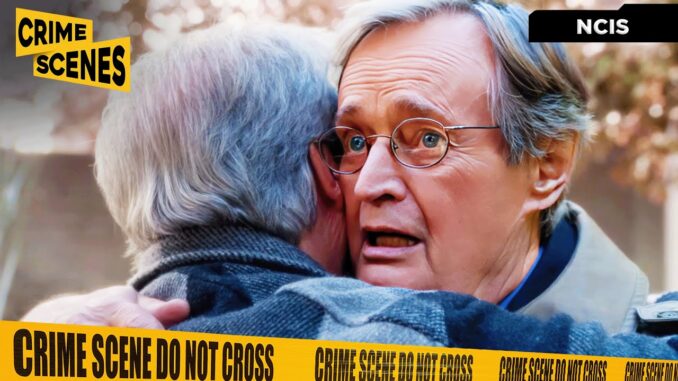
Dr. Arthur Mallard, a man whose life was meticulously ordered by the sterile logic of surgical theaters and the precision of medical instruments, had always prided himself on his impenetrable composure. His hands, steady as ancient oaks, navigated the delicate dance of life and death with a detached competence that earned him both respect and a certain austere solitude. But today, the fortress of his professional persona was crumbling, brick by painstaking brick, under the weight of a single, devastating summons.
The hospital corridor, usually a familiar labyrinth of hushed urgency, felt alien, stretching into an impossibly long tunnel. Each step was a plunge deeper into a past he had meticulously buried, a past where the name "Elias" wasn't a whisper of regret, but a boisterous laugh echoing through sun-dappled fields. Elias, his younger brother by three years, whose free spirit and infectious joy had always been the antithesis of Arthur’s nascent seriousness. Elias, with whom he’d shared a childhood of scraped knees and whispered secrets, before a bitter argument—a foolish, youthful clash of wills over a borrowed car and a broken promise—had driven a chasm between them that pride had ensured would never close. Decades had passed, each year cementing the silence, until it became a living entity, vast and unyielding.
Now, that chasm was about to be bridged, not by reconciliation, but by the cruel inevitability of time and decay. The call had been stark, professional: "Your brother, Mr. Elias Mallard, is in palliative care. It's… urgent."
He pushed open the door to Room 307. The scent hit him first – a faint, sickly-sweet tang of antiseptic mingled with the undeniable aroma of impending surrender. The room was stark, a tableau of white sheets and cold metal, punctuated by the rhythmic whisper of a ventilator. In the center, dwarfed by the expanse of the bed, lay Elias.
Arthur’s breath hitched. This was not the vibrant, restless boy he remembered. This was a fragile, skeletal silhouette against the stark white pillow. His skin, once bronzed by summer suns, was a waxy yellow, stretched taut over prominent cheekbones. The wild, untamed hair he’d always sported was thin, almost translucent. IV lines snaked from his arm, disappearing beneath the sheet, and a clear tube taped to his nostril offered a weak, futile supplement of oxygen.
For a long moment, Arthur could only stand there, frozen, the sterile hum of the medical equipment a silent, unforgiving sentinel to his shock. The years of silence, the carefully constructed indifference, shattered into a thousand jagged pieces. He saw not the man before him, but a ghost: Elias, skipping stones across the river, Elias, teaching him to climb the ancient oak, Elias, his eyes alight with mischief, sharing a stolen cigarette behind the shed. And then, Elias, his face contorted in anger, spitting words that had severed the umbilical cord of brotherhood, words that still echoed in Arthur’s mind, sharper than any scalpel.
He walked to the bedside, his footsteps unnaturally loud in the quiet room. Elias’s eyes, clouded and distant, fluttered open. For a terrifying second, there was no recognition, just a vacant stare. Then, a faint tremor, a flicker of something deeply buried.
"Arthur?" The voice was a raspy whisper, barely audible above the machine. It was thin, reedy, utterly devoid of the booming laughter he remembered.
A jolt, like a sudden electric current, coursed through Arthur. The name, spoken by him, after all this time. It was a phantom limb of connection, throbbing with a pain he hadn't known was still there. He swallowed, his throat tight, inexplicably dry. He, Dr. Mallard, who had delivered the gravest diagnoses with clinical detachment, found himself utterly bereft of words.
He reached out, his hand trembling, and gently took Elias's hand. It was shockingly frail, cold, and papery thin, like withered leaves. He could feel the delicate bones beneath the skin, the faint pulse fluttering like a trapped bird. This was the hand that had once gripped his own in shared adventure, the hand that had punched him in anger, the hand that now lay dying.
A single, hot tear, unbidden and traitorous, escaped Arthur’s eye and traced a path down his cheek, scalding in its intensity. It was followed by another, and another, until his carefully constructed facade dissolved into raw, guttural sobs. He squeezed Elias’s hand, a desperate plea for more time, for a chance to rewind, to speak the words that had gone unsaid for so long.
"I’m… I’m so sorry, Elias," he choked out, the words catching in his throat, hoarse and broken. "I should have… I should have come sooner. I’m so sorry."
Elias’s lips curved into the faintest, most fleeting of smiles, a shadow of his old grin. His thumb, with surprising strength, pressed weakly against Arthur’s palm. "Fool," he whispered, his eyes closing, a last breath hitching in his chest. "Always were."
And then, nothing. The rhythmic whisper of the ventilator continued for a moment, a cruel mockery of life, before it, too, fell silent. The monitor flatlined, a single, unwavering green line stretching across the screen, a final testament to the irreversible truth.
Dr. Arthur Mallard, the stoic surgeon, remained kneeling by the bedside, clutching his brother’s cooling hand. The sterile air seemed to hum with the weight of decades of unspoken words, of pride, of regret. The heartbreak wasn't just the finality of death, but the crushing realization that the opportunity to bridge the chasm, to mend the fractured bond, had vanished, irrevocably, with that last, whispered word. He had been reunited with his brother, yes, but in a moment so agonizingly late, it felt less like a reunion and more like a final, devastating farewell to a lifetime of lost love.